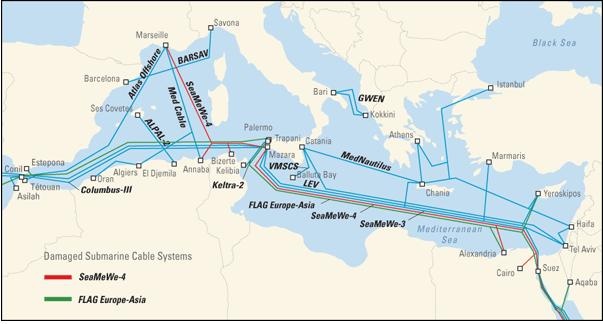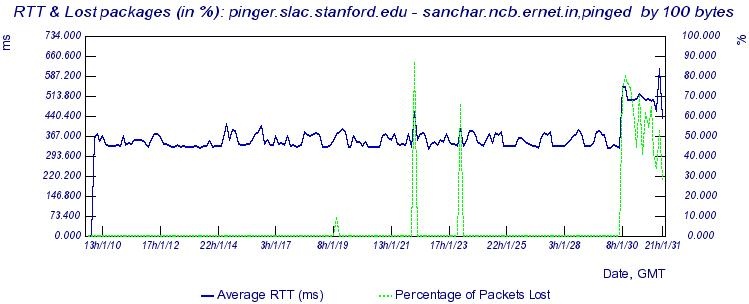On January 31st, 2008, the NY Times, BBC, The Guardian, CNN and many others reported undersea cable cuts in the Mediterranean. One was damaged near Alexandria, Egypt, and another in the waters off Marseille, France. The two cables were damaged Wednesday morning of January 30th 2008. They were damaged within hours of each other. Operators believe the damage was caused by ship's anchors during a heavy storm at sea. One of the cables, Sea Me We 4, is owned by 16 telecommunications companies along its route. The second cable, known as the Flag (for Fiber-optic Link Around the Globe) System, runs from Britain to Japan. The cables are separately managed and operated. The outages mainly affected the Middle East and Asia. Most disrupted communications were quickly rerouted through other cables. the remaining SEAMEW3 cable. The cables involved are shown in the Telegeography map below.
We decided to look at the impact on Internet connectivity as seen by the PingER project measurements.
...
An example of the effect is seen below for a host in Bangalore, India. It can be seen that the RTT went from about 360ms to about 500ms and the losses increased drmatically from close to 0 to 40-60%. Closer inspection shows that for this connection the event occured between 6:47 and 7:16 am January 30th, 2008 GMT.
Looking further into data by PingER we can estimate the approximate start time for this event. The exact time is a bit harder to explain but it is generally between 5 AM and 7 AM GMT on January 30th 2008 for most of the countries in table 1 with the only exception of Bahrain where it all started at 9AM. The differences might be due to the measurement sampling rate or monitoring host clock synchronization issues.
...

